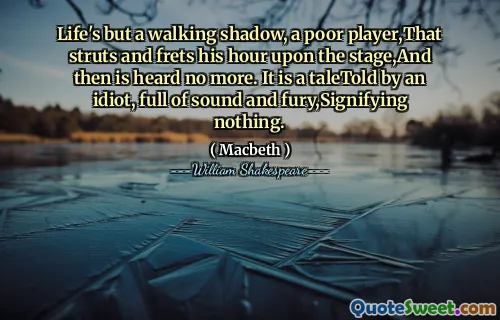Unnatural deeds do breed unnatural troubles.
In Shakespeare's "Macbeth," the quote "Unnatural deeds do breed unnatural troubles" reflects the play's exploration of the consequences of immoral actions. It suggests that when individuals commit heinous acts, like murder and betrayal, they set in motion a series of unnatural events that lead to chaos and distress. This theme emphasizes how guilt and the disruption of natural order can create a cycle of turmoil and suffering, ultimately affecting not only the perpetrator but also those around them.
Macbeth's ambition drives him to commit regicide, which leads to his psychological unraveling and the unraveling of his kingdom. The unnatural consequences of his actions manifest in paranoia, madness, and ultimately his downfall. Thus, Shakespeare illustrates that straying from moral principles results in profound and unnatural troubles, reinforcing the idea that actions have far-reaching effects that disturb the natural balance of life.






